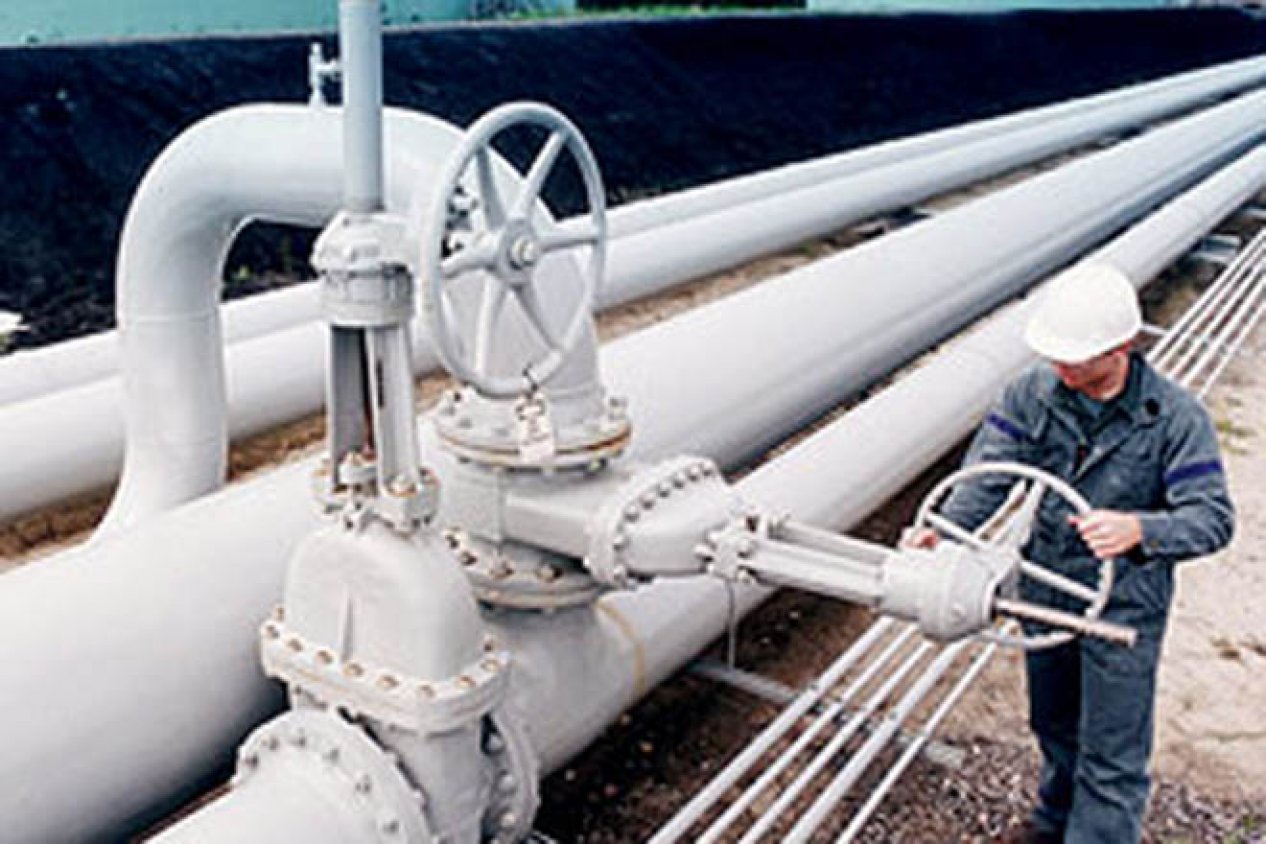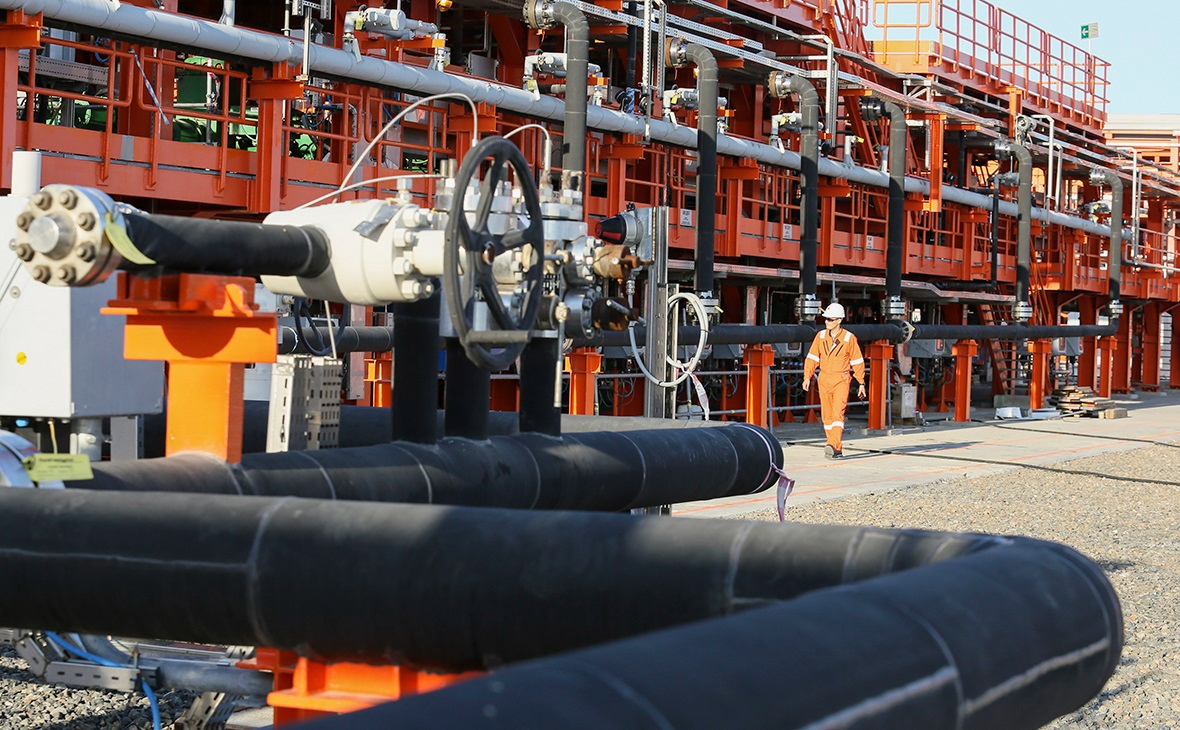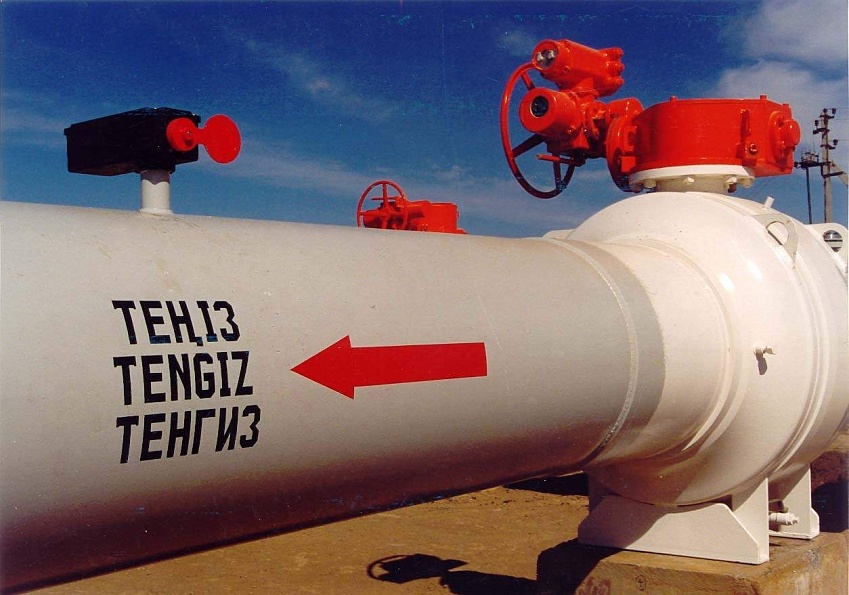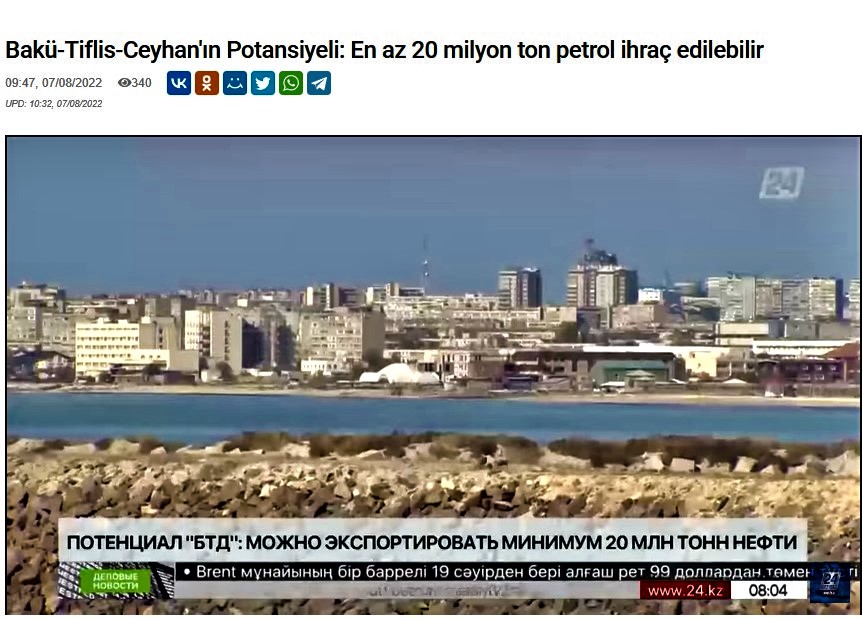
The geopolitical processes in the region further increase Azerbaijan's position as one of the main centers of the East-West energy corridor. Azerbaijan, having recently signed a Memorandum of Understanding on gas transportation with the European Union (EU), has also started to come to the fore in the diversification of oil resources, which plays a vital role in Europe's energy supply. Thus, looking for alternatives to Russian oil, the EU has turned to the Caspian Sea pipelines as one of the primary sources. The European Union wants to increase the flow of oil to the West through the Baku-Tbilisi-Ceyhan (BTC) pipeline, the most reliable oil artery connecting Kazakhstan and Turkmenistan to the Trans-Caspian energy front.
However, since the realization of this project does not match the energy interests of many countries, they refute such reports with the information channels they have and try to bring various counter-arguments. The fact that Russia's Gazeta.ru, Yandex.ru media outlets and even Armenian websites spread reports with the headline "Kazakhstan refutes the transportation of oil through the territory of Azerbaijan bypassing Russia" is an obvious sign showing their grave concern. A news article published with reference to the "Capital" agency of Kazakhstan claims that allegedly Kazakh Energy Minister Bolat Akchulakov had said "Kazakhstan does not intend to transport oil through Baku-Tbilisi-Ceyhan."
Faktyoxla Lab. has checked the authenticity of this claim.
As a result of the investigation, it became clear that the mentioned media outlets presented only a specific part of the Kazakh minister's views that benefited them. In fact, Bolat Akchulakov's opinions published in other media outlets contain very promising messages.

First, the Minister of Energy of Kazakhstan does not express a firm opinion that oil transportation will not be carried out through Azerbaijan. Although the Kazakh minister tries to hide the BTC factor amidst the current difficult situation, against the background of Russia's economic and political pressures, his statement that "companies themselves can conclude agreements at the level of shareholders independently of the Ministry of Energy, but it is necessary to coordinate land, credit, the location of pipeline construction and other issues" is to confirm the authority of foreign shareholders to sign commercial contracts freely, that is, without depending on the Energy Ministry. The operator of Tengizchevroil (TCO) joint venture, working at one of the most promising oil fields in Kazakhstan, is the US company Chevron, which means that this company can freely transport oil via BTC by signing a contract.
Secondly, Bolat Akchulakov admits they will look for alternative oil pipelines in a few years: "Of course, we have to think about alternative ways because after 2024, we expected to increase the volume from the current 85 million tons to 100 million tons. If we now agree on Phase-2 for the Kashagan [field], another 15 million tons of oil could be produced. Therefore, we have to think about how to distribute these transportation opportunities."
Thirdly, Kazakhstan joined the ranks of the countries transporting oil through the territory of Azerbaijan as early as 2000, through the Baku-Supsa pipeline in 2004-2008, and exported several batches of oil to Europe via the Baku-Tbilisi-Ceyhan pipeline after its commissioning in 2006. Currently, about 120,000 barrels of 650,000 barrels of oil transported by BTC daily are from Turkmenistan and Kazakhstan. That is, Azerbaijan is not a new transit country for Kazakhstan.
For more than 15 years, Kazakhstan has been exporting about 80 percent of its oil through the CPC pipeline to the Russian port of Novorossiysk and from there to the global markets, mainly to Asia and the Middle East. Kazakhstan produces 1.4 million barrels of oil per day and is currently looking for an alternative pipeline due to problems and restrictions on the CPC route. (Source)

Brenda Shaffer, an expert on the Caspian and European energy security policy, also believes that the current political and economic situation in the region makes the question of a new, alternative route urgent for Kazakhstan.
"Due to the war, export via Russia's Black Sea oil ports has become more complicated, including due to high insurance rates for tankers entering the area. Thus, Kazakhstan is increasing its oil exports via the BTC pipeline that reaches the Mediterranean region via Turkey," Shaffer said.
All these factors force the Kazakh government to look for alternative routes, as the Minister of Energy Bolat Akchulakov himself stressed. Thus, the economic and political realities for the export of Kazakh oil to the West via BTC are starting to come to the fore.
The transportation of Kazakh oil by BTC is not a matter of 5-6 months, and extensive complex infrastructures should be ready for this. According to Nurlan Zhumagulov, the Executive Director of the Energy Monitor Fund of Kazakhstan, first of all, an oil pipeline should be built from Atyrau to Aktau because today, oil is delivered to the port of Aktau by rail cars, which takes time and is costly. Until the pipeline is constructed, oil can be delivered to Baku by tankers, and then it is possible to connect directly to BTC. (Source)

A question arises: will BTC be able to transport the energy resources of Kazakhstan, which produces 1.2-1.4 million barrels of oil per day?
BTC, commissioned in June 2006, had a daily transmission capacity of 1 million barrels. This was in accordance with Azerbaijan's daily transportation capabilities, as the oil produced from the Azeri-Chirag-Gunashli (ACG) fields was equal to 900,000 barrels; it was fully compatible with the transmission capacity of the pipeline. However, considering the interest of Turkmenistan and Kazakhstan in this pipeline, the Consortium carried out pipeline expansion work in 2008, and BTC's oil output capacity reached 1.2 million barrels. (Source)
After 2015, as the oil production in the Azeri-Chirag-Gunashli field decreased, BTC's daily transportation capacity also decreased. Currently, approximately 650,000-660,000 barrels are transported daily through the pipeline. That is, it is possible to transport at least 500,000 additional barrels of oil through BTC, which has a capacity equal to 1.2 million barrels. (Source)
Despite the decrease in oil production in Azerbaijan, other promising wells have recently been made ready for operation, except for the ACG field block, which is the primary source of oil. Among them, the Karabakh oilfield can be particularly mentioned. In 2020, the support block for production in that field was sent to the sea, which means the start of a new stage in oil production. The first oil and gas extraction is expected at the end of 2022 in this field, which has more than 60 million tons of oil reserves. (Source)
Also, the Bahar, Dostluq, Inam and Zafar-Mashal fields are among the prospective oil blocks. In addition, on January 21, 2021, the "Memorandum of Understanding between Azerbaijan and Turkmenistan on the joint exploration, development and exploitation of hydrocarbon resources of the Dostluq field in the Caspian Sea" was signed. This oil block is also one of the directions of transportation resources to Europe. Thus, in the coming period, thanks to the involvement of other oil fields of Azerbaijan in the production, it will be possible to increase the daily transportation capacity of BTC to 700,000-800,000 barrels, in this case, taking into account the transportation possibilities of Kazakhstani oil (700,000-800,000 barrels per day), it means increasing the transmission capacity of the pipeline. Because Kazakhstan produces more oil than Azerbaijan, the production level is increasing year by year, and it is planned to increase the volume of oil production to 100 million tons by 2025. This is 1.6 million barrels per day, and if Kazakhstan transports at least half of the daily oil with BTC, this means 800,000 barrels of oil per day. In the future, Turkmenistan might also transport oil via BTC. In this case, it may be possible to increase the daily throughput of BTC to at least 2 million barrels.
Result:
♦ Kazakhstan's Energy Minister Bolat Akchulakov's views were given in a distorted form by some media outlets.
♦ Bringing the energy resources of Azerbaijan and Kazakhstan to global markets via BTC will lead to a 2-2.5 times increase in oil transportation to the West.
♦ Redrawing the world's energy map, Azerbaijan will significantly strengthen its position and play an important role in Europe's energy supply.




















